11:11 AM, 15 November 2018
On 25 October, Book Depository sent an email to NZ subscribers saying ‘Read The Top NZ Books of the Last Decade’. I clicked through to find our NZ Bookshop Day promotional list, bar a few titles, and a strap line saying ‘we’ve compiled a list of most popular books in New Zealand.’ Two days before NZ Bookshop Day, when bookstores all over New Zealand were celebrating these titles, voted for by them from a Nielsen BookScan list, with displays, discounts and more.
That is marketing we see as calculated to harm bookshops on the one day that celebrates bricks and mortar. This made me mad. So, since then, I’ve been doing a little bit of research. I’m no hacker, and I’m only moderately good at reading tables, so I’m not going to go crazy on exposes or over-do the economic analysis. But I am going to set out a few facts, and with a little help from my bookselling friends, tell you about a few ways that we can counter these facts and get our customers in-store this Christmas.
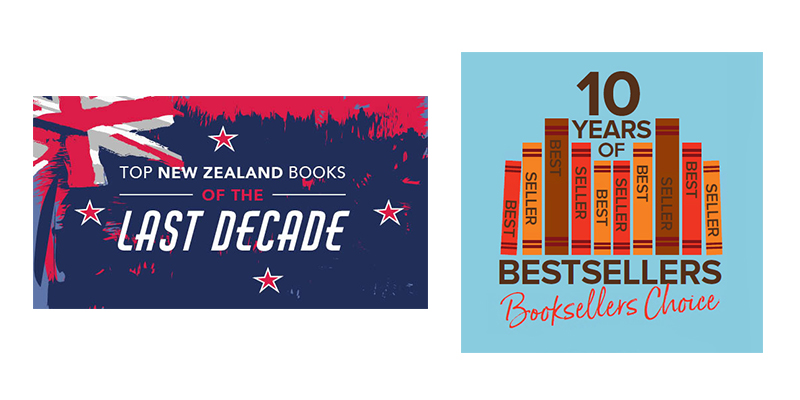
Book Depository and Amazon and bookshop numbers
Book Depository is owned by Amazon. They are currently running New Zealand-targeted promotions, aimed at upsetting the delicate balance of the ecosystem for bricks and mortar bookshops in New Zealand. Amazon knows how to do this effectively. While their presence in the US is by no means the reason all bookshops close, only 58% of the number of bookshops open in the US in 2004 are open in 2017.
Right now, figure.nz tells us there are 366 legal business entities in the newspaper and book retail industry operating in New Zealand in 2018 – this includes only retailers that employ more than three people and earn more than $30,000 taxable per year, so it’s likely to be a good number more allowing for small and second-hand bookshops, and chains (Whitcoulls, with 50 stores isn’t included, and neither are the centrally-owned Paper Plus stores). In 2004, there were 726 legal entities in the newspaper and book retail industry – so the stats are comparable in terms of the decline of bookshops, if not in terms of when, exactly Book Depository and Amazon reached out its arms to New Zealand.
After many years selling into New Zealand, Book Depository began operating a distribution using a third-party logistics company in Melbourne in 2016; Amazon began operating their own distribution centre in Melbourne last year, then Sydney this year and both are now fully operational. Book Depository now offers 3-6 day shipping on all books to New Zealand.
Nothing beats a bookstore
Despite all the negative statistics related to Amazon in the US from 1995-2008, noted earlier, we know that actually, since 2009, the number of independent bookstores in America had risen by 35% by 2015.
This fact shows there must be something that is still appealing about independent bookshops, right? We know there is. Keep reading.
We need to start fighting back, in the way that they have in America. Start reminding your customers they can get those romance novels and children’s books in-store. We know they are the growth markets – Book Depository told us this, and stats recorded by Nielsen show us the growth in children's books regularly. Remind them that if they ask you for recommendations, you will even help them do their buying. Remind them that you and your staff members read widely, and you won’t find any online bot that does that.
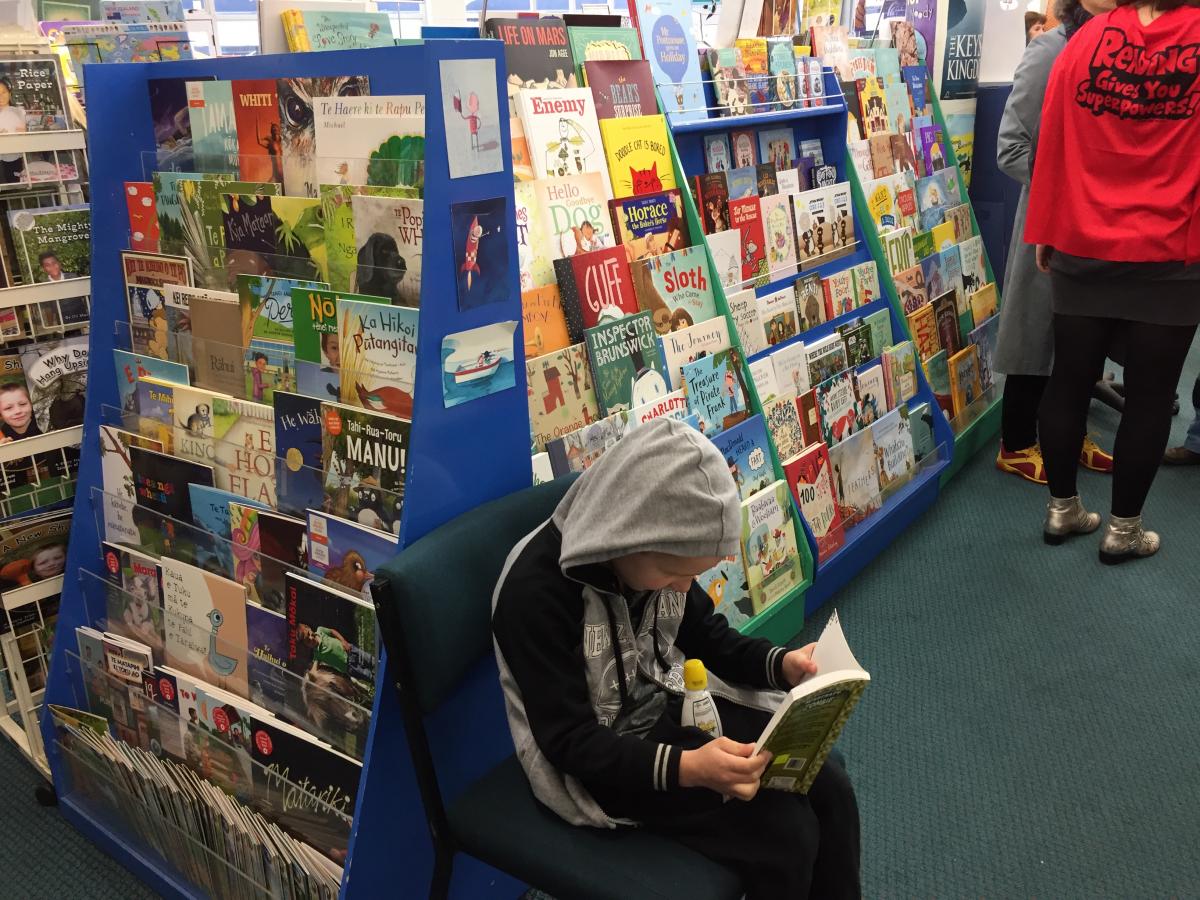
You and your staff are your competitive edge. 2018 Conference guest Shaun Bythell knows this, and so do our dedicated New Zealand booksellers.
Louise Ward from Wardini Bookshop says, ‘Walking into Wardini Books is like walking into the brains of everyone who works here. Our books are bought with our regular customers, and our irregular, browsing customers, in mind and our favourite and beloved titles are clearly marked with the bookseller’s name and their review. We’re all constantly reading, discussing and reviewing to make sure that there is something to wholeheartedly and genuinely recommend to anyone who comes into our world.’ (the staff pic below is from mid-2017)
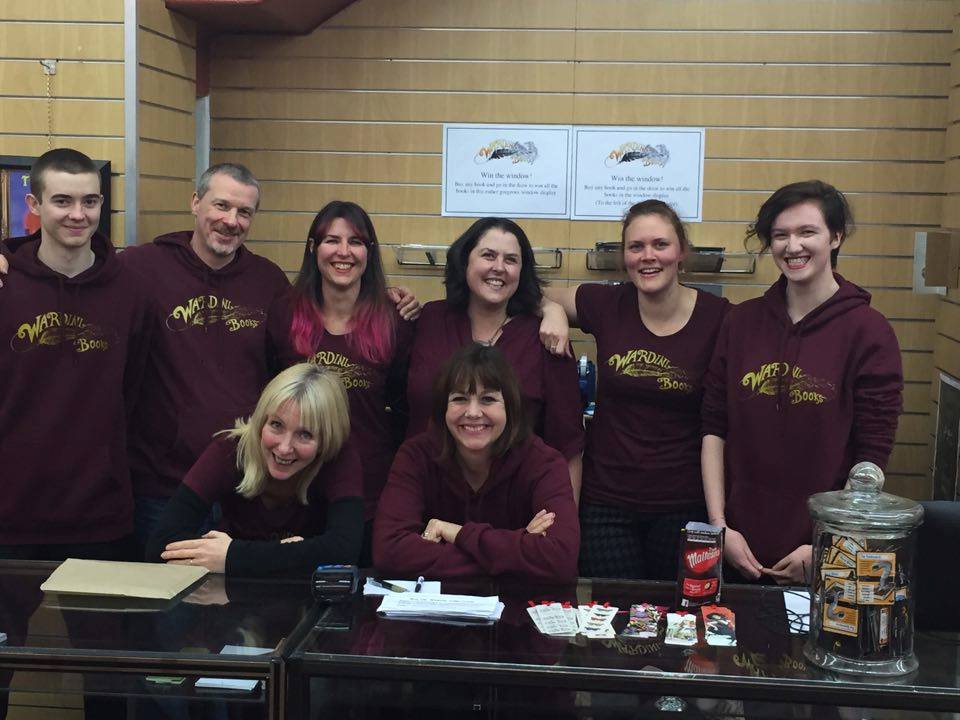
New Zealand Purchasing Habits
In their 2018 Reading Survey released in August this year, the NZ Book Council found that the majority of fiction books purchased by New Zealanders are now coming from online sources, and of those online sources, international sources are more popular by 20% than domestic sources. The latter statistic is true of non-fiction as well as fiction.
However, for New Zealand fiction and non-fiction, bookshops are only behind libraries for where people are most likely to go to find their books. We know this already, but this bears repeating: we can be more competitive in the world of New Zealand published books than we can international titles. So let’s carry on with the valuable work of de-stigmatising our own body of literature!
Carole Beu from The Women’s Bookshop does a lot of events and launches, and says, ‘It’s wonderful when we do an event with a small NZ press or a local author who brings her whole community with her. Recent examples are the launch of the novel Grandzilla, by Grey Lynn author Lisa Williams – the shop was packed full with friends & family. The literary community acknowledges the superb job we do in promoting women authors, NZ ones in particular.’
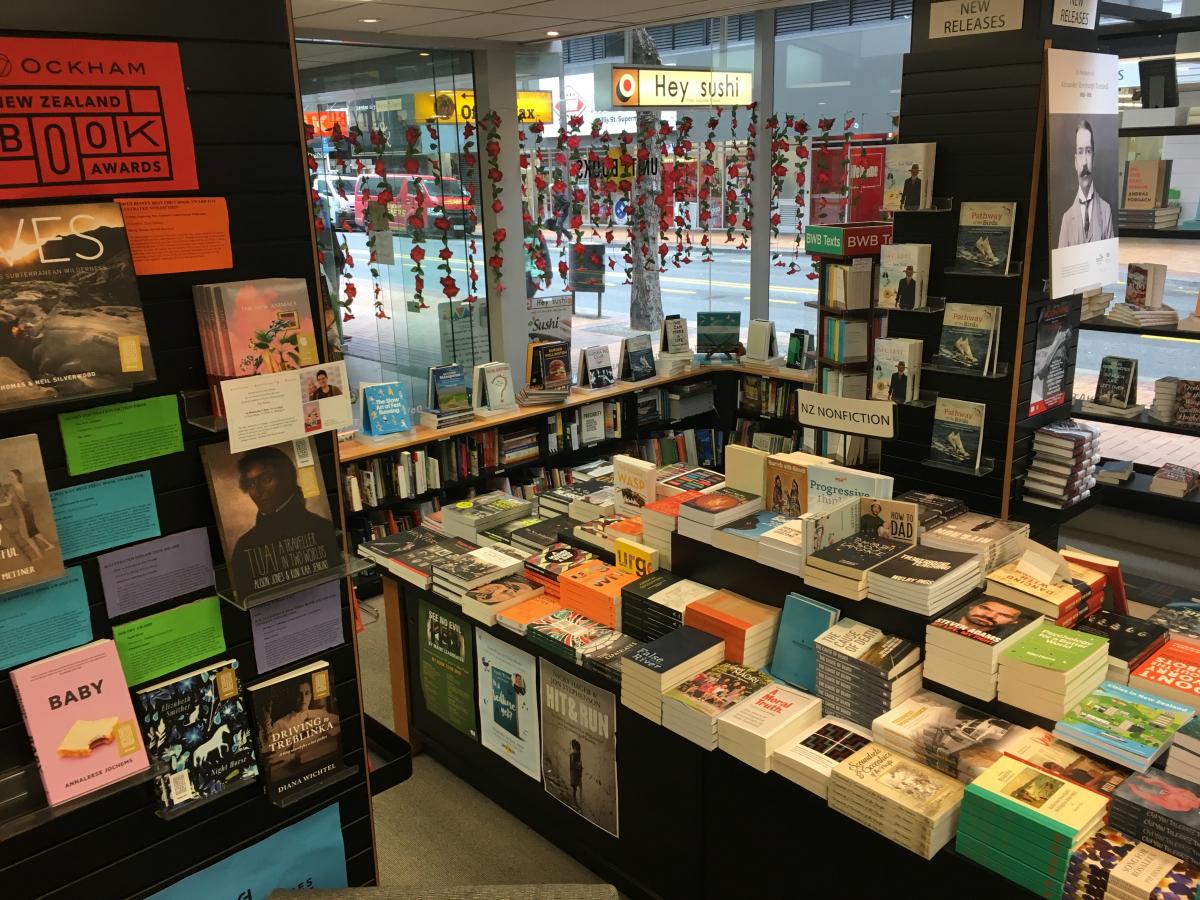
Tilly Lloyd from Unity Books Wellington says that New Zealand books represent 22% of their annual turnover, and they put a lot of energy and resource into promoting them. She notes, ‘NZ/Aotearoa authors comprise 90% of our 66+ instore launches and lunch-time gigs per year; our changed-weekly email signature is dedicated to NZ/Aotearoa publishers (each turnabout across the year), and we respond actively to NZ/Aotearoa self-publishers.’
And this is on top of a whole raft of other ways in which Unity Books promotes their local market.
Battling Online
Books are the fifth most purchased item online, behind airline tickets, clothing, entertainment and travel services, according to Nielsen data. According to an article in The Register, almost 600,000 kiwis bought a book online last year. While I hope most of these were sold via NZ online store for books and more Mighty Ape, I’m not sure this is the case.
Forty-seven of our bookstore members have websites off which they sell their stock, including the one website for Paper Plus. The best of these have staff recommendation sections – whether this is built in through your Circlesoft store front, or whether this is within your blogs that link to your sales site, this is what algorithms cannot do! They can ask people what they like to read via a form until their pixels go blue, but they can’t personally recommend a book as a reader.
Wardini Books has included staff recommendations in their shop category, because they want that personal touch even when selling online. Time Out Bookstore has ‘staff picks’ on their website front, including their radio reviews, and they split into two sites last year.

‘We want our website to be very easy to use for shopping,’ says Jenna Todd, ‘but also an archive of the many radio reviews we do for RNZ and BFM. We want the site to be informative, but also give a strong sense of what customers will expect when they come in store.’
This is also something that bookshop Facebook and other social media pages are excellent for. Marsden Books has really boosted their profile through Facebook and Instagram reviews of their books; Unity Books regularly promotes their staff picks and event books… So many bookshops have great personalities behind them: let them shine.
For Marsden Books, this opportunity to shine on Facebook was delivered to them by a local woman who didn’t work for them, offering to help. 'Belinda came in and immediately knew what was needed', says Anna Hunt. She says she now pays her for 10 hours a week, ‘We get a lot of feedback from customers and it has raised our profile and increased sales – although that is hard to quantify. We confer several times a week and I give her a pile of books. She likes to add the personal touch and we also do quite a lot of promotions.’
We are not a civilisation that is willing to take a backwards step
Australian journalist Brigid Delaney says, ‘To imagine a city without bookstores, replaced by giant warehouses overseas shipping books direct to customers’ homes is to imagine a civilisation that’s taken a backwards step.’ (The Guardian, 2016)
Here’s something else. The businesses behind the gigantic warehouses, right now, are not paying any GST in New Zealand. This is due to a GST loophole that has been exploited for as long as the world wide web has existed and people have trusted it well enough to purchase things off it – in 2016, over 65% of all New Zealanders felt safe making online transactions (the older you are, the less likely it is you’ll feel safe) – but for those aged 25-34, this stat is hovering at 80%.

Thanks to studies from the ISCR commissioned by Booksellers NZ, and campaigning from ourselves and Retail NZ, this is set to change in October 2019: a full seven years after this was identified formally as a problem. Frustrating, but now we can compete on an even playing field.
GST not withstanding, if there is one thing professional booksellers know best, it is that bookselling isn’t just about selling product. It is about creating connections. And this has been proven in an academic report by Harvard Business School Profeesor Ryan Raffaeli.
The Three C’s
Raffaelli has come up with three C’s for independent bookshops, that explain why they have continued to thrive in the US, in spite of it all: Community, Curation and Convening (aka Events).
Drill into your community. Your community knows you because you employ their cousin’s daughter, and they know you because you talked to them and recommended the book that their 5-year-old loved, and that turned their 11-year-old back into a reader. They know you, in some cases, because you have been there seemingly forever. Muir’s Bookshop in Gisborne is 113; Hedley’s Books are 111; Unity Books Wellington is 51, Beattie & Forbes in Napier are 40. Paper Plus group is collectively 30. They have all served many, many generations of booklovers.
But VOLUME Books has proven that don’t need longevity to be essential to your community. The secret of this two-year-olds success at the Book Industry Awards this year lay in their connections with their community.
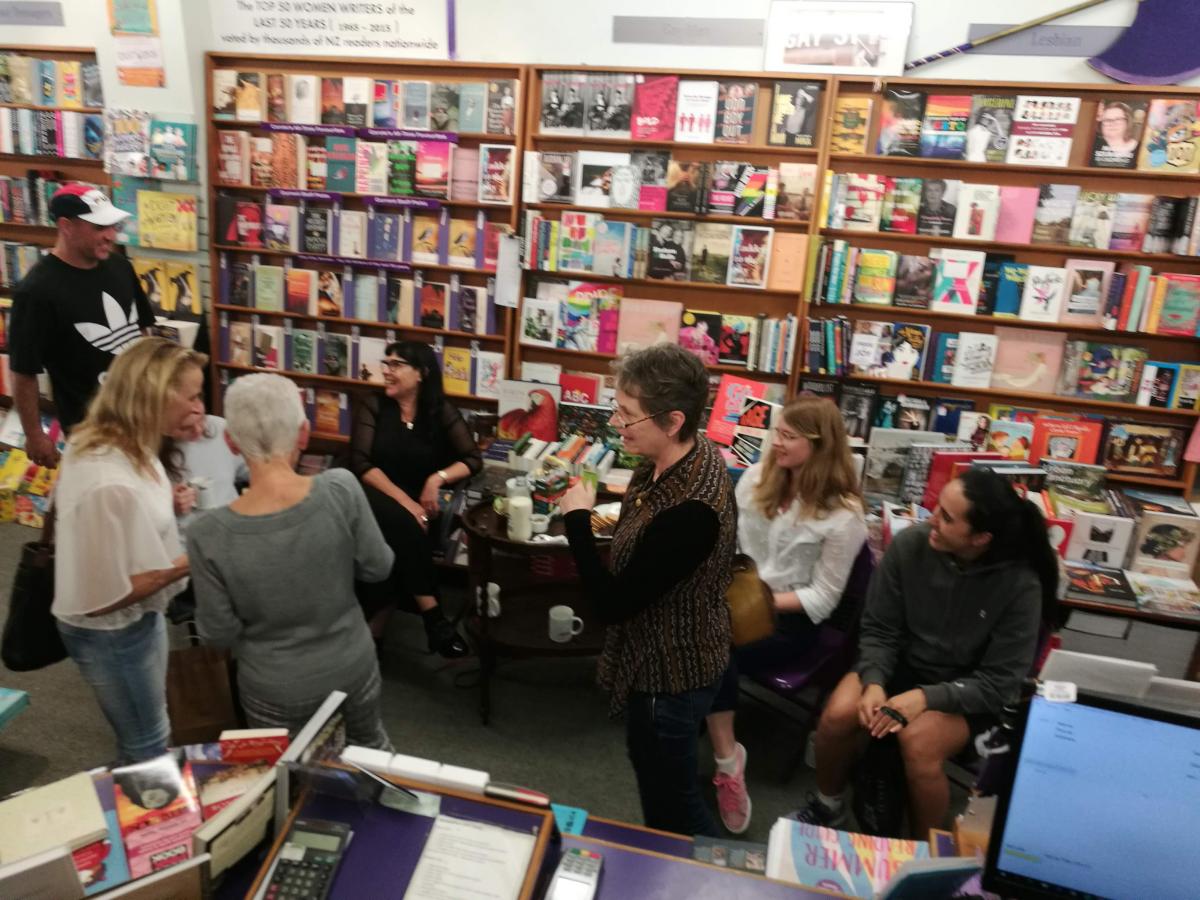
Another stalwart bookseller, The Women’s Bookshop, has had a dedicated community for nearly 30 years. Carole Beu says, '20 years ago, we made a move from Dominion Road to Ponsonby, and the books were transported by dozens of customers with cars, trailers, trucks and vans. This was when I fully understood the strong sense of ownership that customers feel for the shop.
‘We give our customers a safe space; and we give them a warm, welcoming haven, a space to be peaceful, a space to meet friends. Our shop is simply a lovely place to visit, whether you buy a book or not.’
Focussing on Christmas
We know – heck, even Amazon knows – that physical books are best. Ebooks are just a format, and it appears that only 5% of readers read entirely on an ereader. An article in the Financial Times indicates that the shift in Amazon's heavy discounting has moved from ebooks to physical books because of Amazon’s inability to disrupt physical books in the way that many other types of media have been disrupted.
Both Amazon and Book Depository are counting on their price offer to lure people to purchase an identical item for a much lower price. In a recent Stuff article, the headline cried, ‘Bookshops still can’t compete on price once GST added to online purchases.’ Now, of course there are many reasons for this: economy of scale, rising rents, staffing costs and more - check this piece by Duncan Grieve out. All of which gets swept under the table in the urgency to reach the best price for that Lee Child you’ve been hanging out for. But we can compete in lots of other ways.
So how to beat price discounting this Christmas? Remember this: last year, Book Depository was unable to get orders to New Zealand in time for Christmas, despite their distribution centre being so nearby. When you google Book Depository delays, you find a range of newspaper articles from 2011 – 2018 with unhappy consumers telling the media their woes over online shopping. Shopping online, particularly internationally, remains a risky business.
Offer something they can't
For luring Christmas shoppers, it is all about customer support and excellent service. Rachel Eadie has been working on this for several years at Scorpio Books. ‘Carefully curate an inviting space that encourages shoppers to linger and spend time, and return to. Think beyond isles of shelfs. Create cosy nooks with comfy chairs.
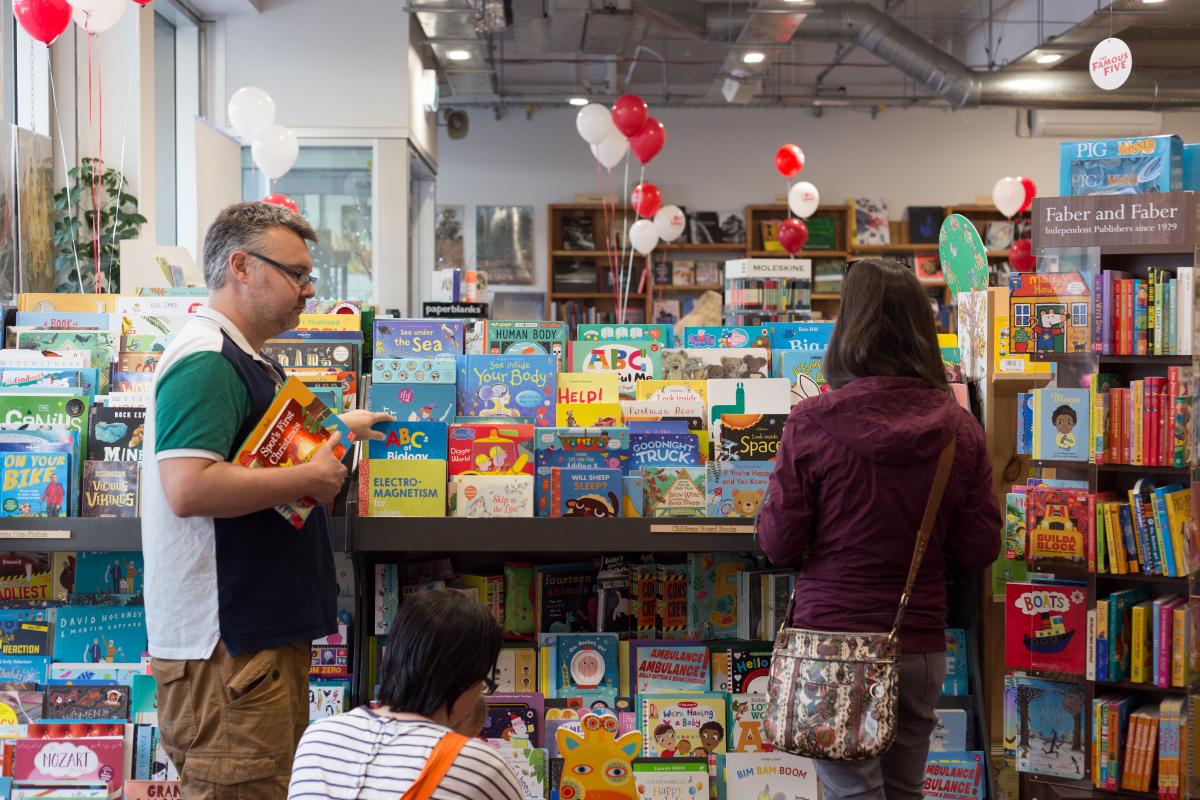
‘For those wavering as they walk past your store- window displays are a no-brainer but how about a chalk board with engaging, quirky messages. Post these online too! We regularly have customers posting pictures of our chalk boards on their social media accounts which often attract lots of comments. In short, bring a touch of your store online for people to discover. Once you have them in store, keep them coming back by having friendly, knowledgeable staff and a fantastic space.’
Finally, Louise Ward says, ‘Our bookshop is not a cookie cutter place; we value community over profit and do everything we can to ensure that our community receives outstanding service from our very real, very book mad booksellers: recommendations, gift wrapping, delivery, email and phone conversation customer support. You’re not going to get that through Amazon and their offshoot, Book Depository. And we pay our taxes.’
You can build this community around your bookshop; lets join together to battle the Book Depository beast and make our sales figure soar.
Article by Sarah Forster